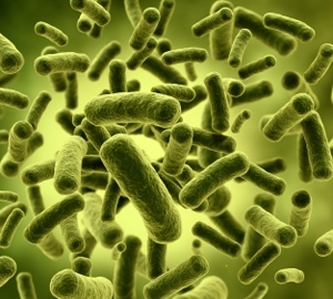| We have previously looked at the dreaded swim test, every lab rat's worst nightmare. Here it is used again to shed some light on a few different questions posed in the IB Psychology syllabus, both in the biological Level of Analysis and the Abnormal Psychology option. The IB Psychology Biological Level of Analysis (BLOA) learning outcome: Discuss how and why particular research methods are used at the biological level of analysis (for example, experiments, observations, correlational studies). With the focus being a good experimental study. We can can also use it to address the IB Psychology Biological Level of Analysis (BLOA) learning outcome: Discuss two effects of the environment on physiological processes. The hypothesis, good bacteria, in the right balance in the gut, will have positive effects on mental health - reducing stress and anxiety. To test this experimentally. Take two experimental groups of lab rats and manipulate an independent variable. One group is fed probiotics in their diet and the other a broth (a broth is cooked and thus has no bacteria, good or bad, present). Choose the dependent variable, how long rats will keep swimming in a standard water maze (safe haven platform removed!) before giving up and going into a 'dead float'. Now this isn't actually the rats dying, they're just giving up on finding a way out of their stressful environment. No rats were harmed in the making of this experiment. The results? Rats with a digestive system loaded with good bacteria did not give up. They continued to explore their environment looking for a way out until the experimenters took pity on them, lifted them out and gave them a fluffy towel and a quick blow dry. Those rats with less healthy gut flora gave up, en masse, within about two minutes. This is a classic sign of depression, less exploration and stress avoidance escape behaviour. The conclusion, the good gut bacteria were somehow altering brain function in a positive way. Further experiments, this time with the unfortunate effects of euthanising the participants, pin pointed the vagus nerve - the vagus nerve is one of 12 cranial nerves, extending from the brain stem to the abdomen. When this was surgically severed, the probiotics conferred no such protective effects in stress avoidance or blood cortisol levels. Use this study, embedded below, to address the IB Psychology Abnormal Psychology option learning outcome: Analyse etiologies of one disorder (major depression). As well as IB Psychology Abnormal Psychology option learning outcome: Evaluate the use of biomedical, individual and group approaches to the treatment of one disorder (again, major depression). Feeling sad? Anxious about that party you are attending on the weekend? Simple answer ... get stuck into a big tub of healthy (and delicious) of natural yogurt. Yum yum! | A really funny, insightful and illuminating 15 minutes of Radiolab. Listening to this is guaranteed to send you straight out to your local supermarket to stock up on yogurt. Of course, if you don't have time to prepare your own model IB Psychology exam questions, you can borrow ours! All answers to the IB Psychology extended response questions have been prepared for you. Full marks guaranteed! |
|
Feeling a little distressed? Socially anxious? 'Yogurt therapy' highlights the incredible link between your gut flora and mood. We may have always intuitively understood the mind-stomach connection. Anxious? - butterflies in the stomach. Terrified? - Bring my brown pants. Disgust? - sick to he bottom of my stomach, and so on and such forth. Now some rather startling science is shedding some light onto this connection. Author: Derek Burton – Passionate about IB Psychology |
IB DipLOMA PsychologY:The IB Psychology Blog. A place to share research and teaching and learning ideas for those studying and teaching Psychology for the IB Diploma Programme. Archives
April 2016
Categories
All
|



 RSS Feed
RSS Feed